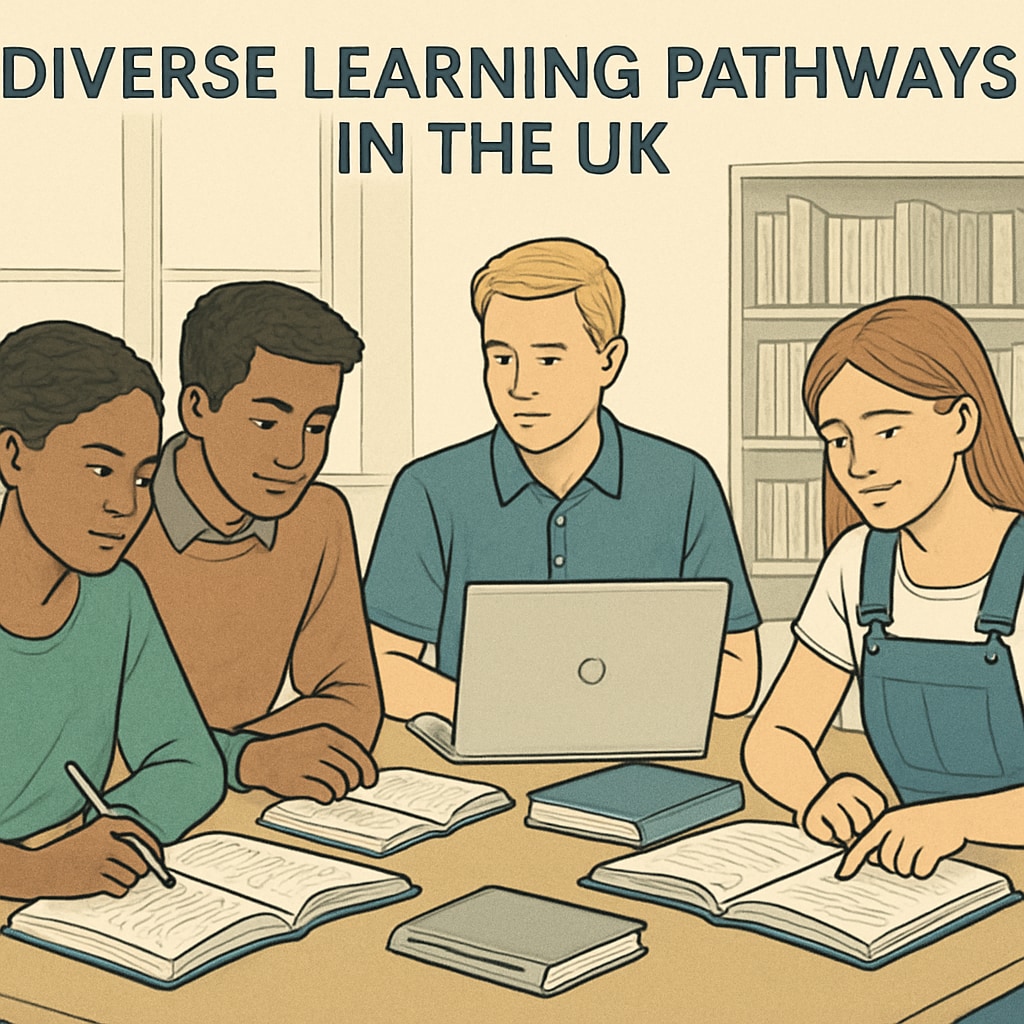Returning to education can be a daunting prospect for young people who have experienced interruptions in their academic journeys. The UK education system, however, offers a variety of pathways to support individuals in resuming their studies and achieving their qualifications. From foundational certifications to higher education programs, learners can find tailored solutions to fit their needs. This article explores these pathways and provides practical advice on navigating qualifications, accessing resources, and managing the emotional aspects of returning to education.
Flexible Pathways to Qualifications
For those seeking to rebuild their education, the UK offers a broad spectrum of qualifications to cater to different levels of prior learning and career aspirations. The most common starting point is obtaining foundational qualifications such as GCSEs (General Certificate of Secondary Education) or equivalent certifications. These are essential for progressing to advanced education or vocational training.

Another important pathway involves A-levels or vocational qualifications like NVQs (National Vocational Qualifications) and BTECs (Business and Technology Education Council). These programs are designed to offer both academic and practical knowledge, providing flexibility for learners with varying interests and goals. For those aiming to enter university but lacking traditional qualifications, access courses or foundation years are viable options.
In addition, apprenticeships and traineeships combine earning and learning, making them an attractive choice for individuals keen on gaining hands-on experience while obtaining certifications. These programs are supported by the UK government and industries, ensuring their relevance in the job market. For more detailed information about vocational qualifications in the UK, you can visit the UK Government’s official site.
Resources and Support Systems
Accessing the right resources is crucial for a successful return to education. Local colleges and adult education centers are excellent starting points, as they often provide tailored advice and support programs for returning learners. These institutions also offer flexible learning options, including evening and part-time courses.

Online platforms such as the Open University and FutureLearn also provide accessible courses that enable learners to study at their own pace. These platforms are particularly valuable for those balancing education with work or family commitments. Additionally, charities and organizations like the National Careers Service offer free advice on education and career planning. For instance, the National Careers Service provides personalized guidance to help individuals make informed choices about their learning pathways.
Managing Emotional Challenges
Resuming education after a break often comes with emotional challenges, such as self-doubt, anxiety, or feelings of being “behind” peers. It is essential to address these concerns to ensure a positive learning experience. Seeking support from school counselors, mentors, or peer groups can make a significant difference.
Building a routine, setting achievable goals, and celebrating small milestones can also help maintain motivation. Additionally, mindfulness and stress-management techniques, such as meditation or exercise, can alleviate anxiety. Many educational institutions now offer mental health resources, recognizing the importance of emotional well-being in academic success.
Finally, remember that returning to education is a courageous step that demonstrates resilience and determination. Every learner’s journey is unique, and there is no predefined timeline for success.
Conclusion: Embracing the Opportunity to Grow
The UK education system provides numerous opportunities for young people to return to learning after academic interruptions. Whether through foundational qualifications, vocational training, or higher education, there are pathways to suit diverse needs and goals. By leveraging available resources and addressing emotional challenges, learners can confidently rebuild their educational journeys and unlock their potential.
Returning to education is not merely about gaining qualifications; it’s about embracing a second chance to grow, learn, and achieve your aspirations. With the right support and determination, the journey can be both rewarding and transformative.


